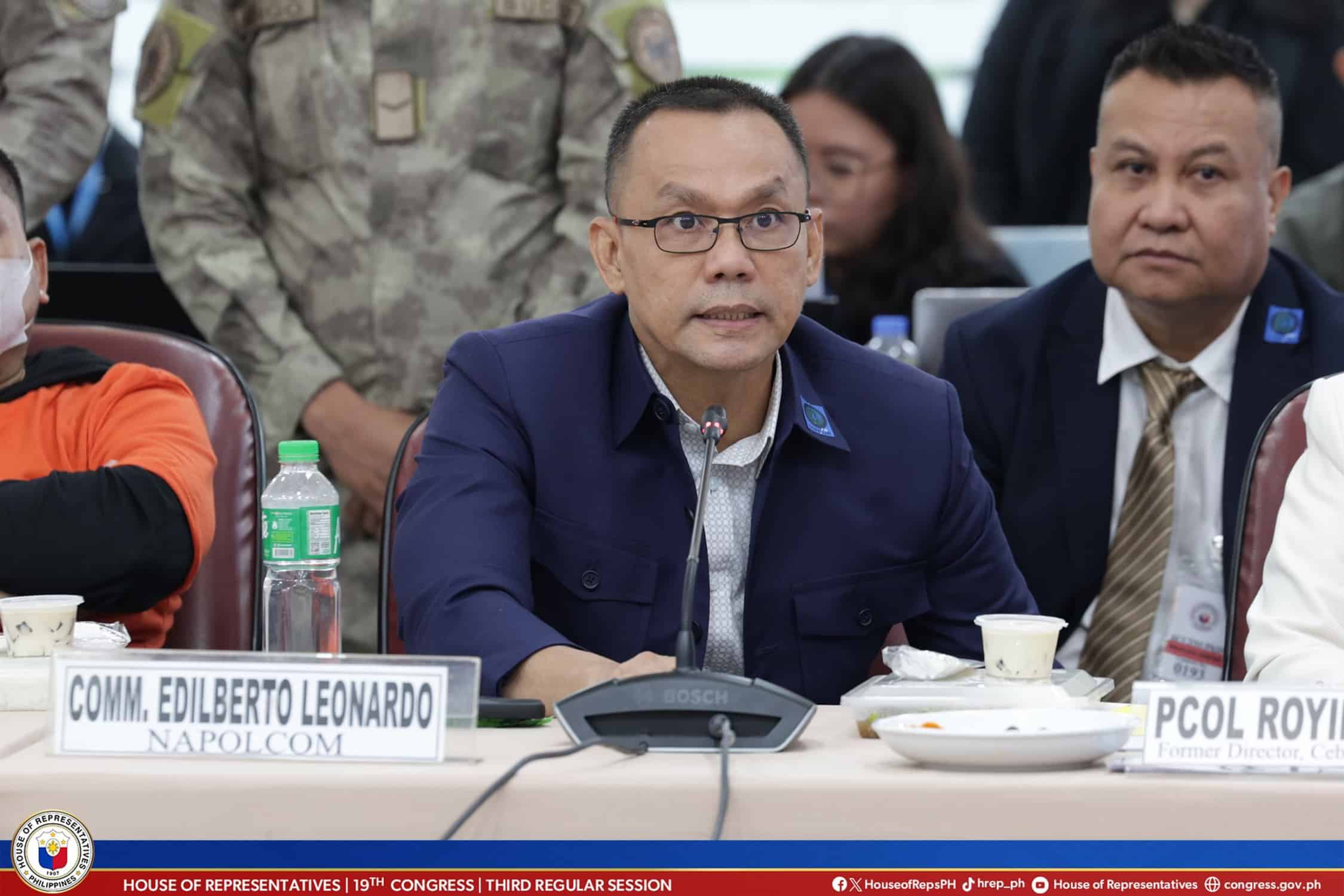
Edilberto Leonardo —House of representatives photo
MANILA, Philippines — Retired Police Col. Edilberto Leonardo has confirmed the existence of a reward system that partly fueled the thousands of killings in former President Rodrigo Duterte’s brutal drug war.
Former police officer Royina Garma, who was appointed by Duterte as general manager of the state lottery agency, had testified that she had recommended Leonardo to the then president-elect who wanted an officer from the Iglesia ni Cristo religious sect to lead his nationwide antidrug campaign.
‘Only yes or no’
While Leonardo initially denied Garma’s Oct. 11 testimony, he eventually corroborated both of Garma’s affidavits during Tuesday’s hearing of the House quad committee, which extended past midnight.
The affidavits included details about a controversial cash reward system allegedly implemented during the bloody antinarcotics campaign.
The Duterte administration reported that more than 6,000 people were killed in the war on drugs but human rights groups believed the number was multiple times bigger.
During Tuesday night’s hearing, Manila Rep. Bienvenido Abante continued his questioning of Leonardo and told him to answer “only yes or no.”
“I am not going to ask for any more explanation,” Abante said.
“Do you believe the two affidavits of Colonel Garma that you have read and heard? Yes or no?” Abante asked.
“Yes, Mr. Chair,” Leonardo replied.
Abante continued: “Second question, also answerable by yes or no. Do you believe there was a reward system? Yes or no?”
Leonardo was tentative. “I heard about it, Mr. Chair,” he said.
Abante, sounding irritated at the former officer’s initial response, said: “Yes or no only. Do you believe there was a rewards system, yes or no?”
“Yes, Mr. Chair,” Leonardo finally confirmed.
Linked to killings
Leonardo had resigned as commissioner of the National Police Commission after he and Garma were implicated in previous quad committee hearings in the killing of the board secretary of the Philippine Charity Sweepstakes Office in 2020, when it was headed by Garma, and in the stabbing deaths of three Chinese drug lords serving time at Davao Prison and Penal Farm in 2016.
For the chairs of the quad committee, Leonardo’s admission was a solid statement that extrajudicial killings (EJKs) fed on a rewards system and marked a significant milestone in their investigation of the war on drugs of the previous administration.
“It has been established that actually there’s a reward system [during the Duterte drug war]. It can no longer be denied by the previous administration,” Abante said.
For the record
Quad committee lead chair and Surigao del Norte Rep. Robert Barbers said Leonardo’s testimony allowed the four-committee panel “to establish the existence of a reward system for EJKs, meaning, in the implementation of the war on drugs, there were extrajudicial killings and these were being rewarded.”
“His admission to the quad comm will be placed on the record and this record that we will use as basis in writing our committee report. We will include it,” Barbers added.
The former president himself had somehow confirmed that he had offered rewards for “neutralizing” drug lords during his administration as early as 2016.
In interviews in the early days of his presidency, Duterte offered a P3-million reward for the killing of a drug lord.
“Kill them. Personally, I want you to do the killing,” he said in one interview, addressing police officers.
Following Garma’s statement to the quad committee, former Philippine National Police chief and now Sen. Ronald “Bato” dela Rosa and Sen. Christopher “Bong” Go, a close aide of Duterte who served as presidential assistant, denied there was a reward system.
‘Additional motivation’
But in interviews also in the initial months of the Duterte administration, Dela Rosa acknowledged that such rewards were an “additional motivation” for officers “instead of them receiving drug money.”
In a September 2019 statement to reporters, Go himself said that the reward that Duterte had announced previously “was still there,” citing a P1-million bounty for dead “ninja cops,” or rouge officers who were involved in the drug trade, and P500,000 for those who were not killed. A whopping P2-million awaits those who kill suspects who resisted arrest, he added.
Garma said it was Duterte himself who explained that he wanted an officer who belonged to INC to head the antidrug campaign because INC members could be trusted with money.